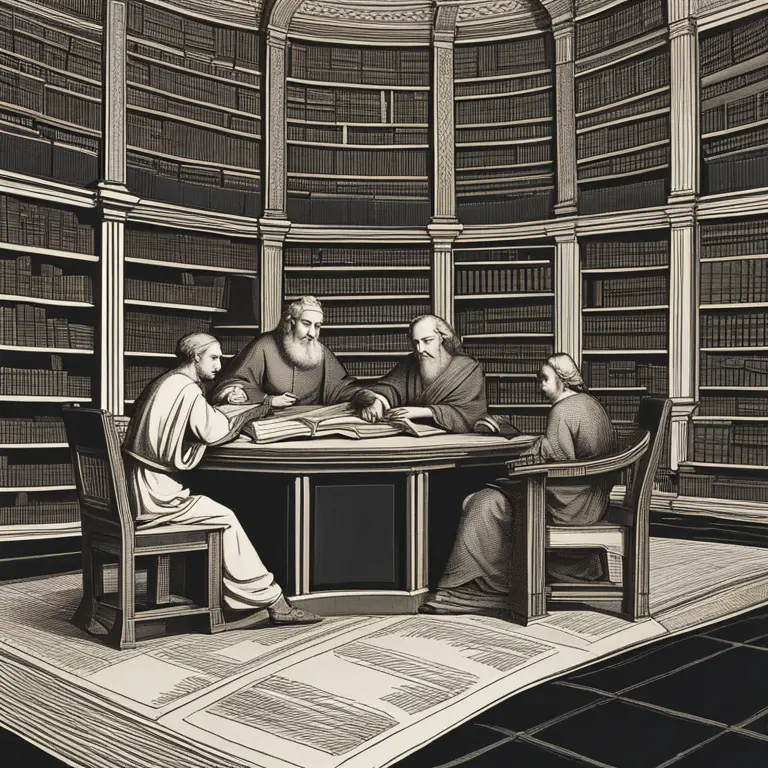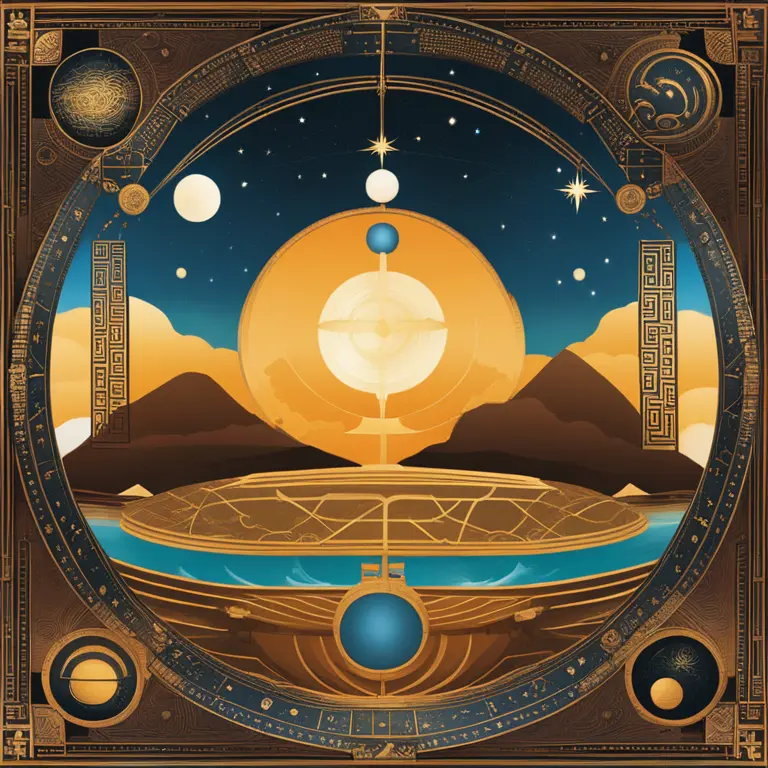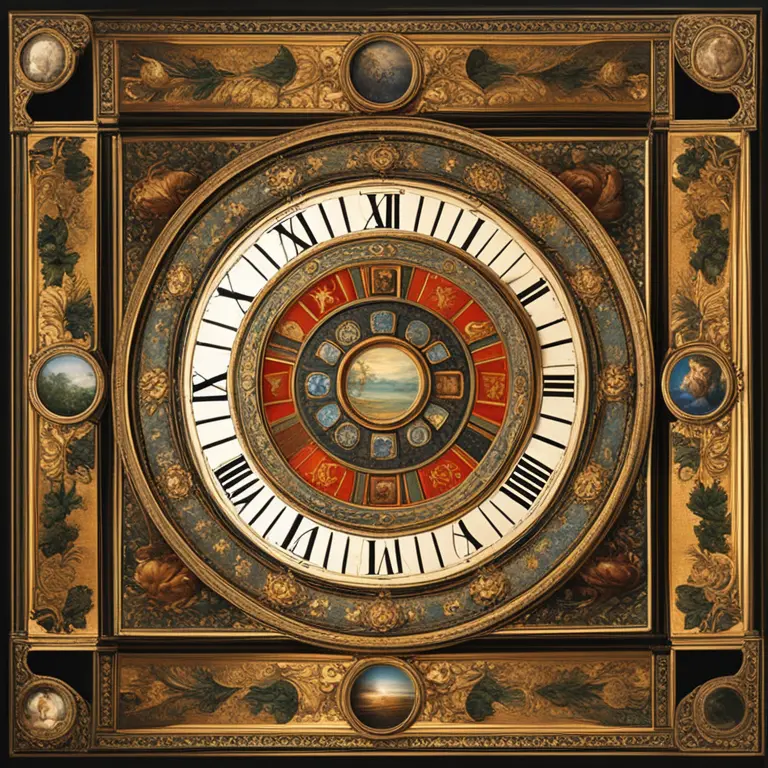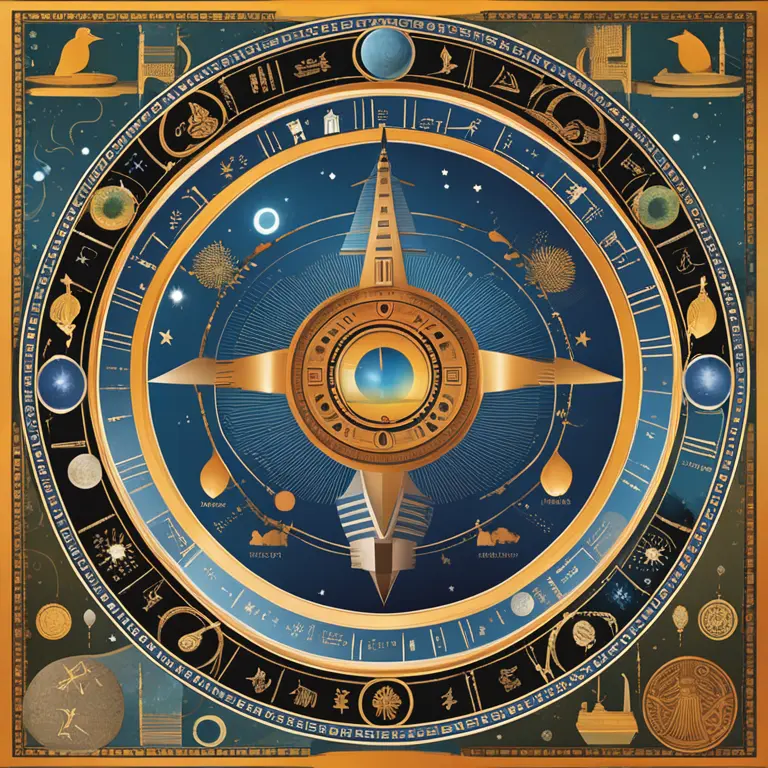
The Legacy of Astrology: A Journey Through Time
Explore the captivating history of astrology, from its ancient beginnings to its modern-day relevance. Discover the interplay of stars and human destiny through the ages.
article by Priya Deshmukh
Ancient Roots and Stellar Guidance
Astrology's foundations reach back thousands of years, intertwined with humanity's earliest observations of the sky. Ancient civilizations, including the Babylonians, are credited with forming the fundamental principles of astrology. Over time, they meticulously recorded celestial events, weaving them into their cultural and religious practices. Astrology provided guidance for leaders and became a vital tool for predicting omens and organizing agricultural activities, being intricately linked to the seasons and cycles of the earth.

Hellenistic Synthesis and Expansion
The Hellenistic period marks a significant chapter in astrological history. Greek scholars, particularly in the post-Alexandrian era, synthesized Babylonian knowledge with Egyptian and Greek cosmological concepts. This period saw the creation of the zodiac system, a celestial coordinate system that became the backbone of Western astrology. Astrology flourished, offering personal astrological readings which included natal charts predicting individual destinies based on celestial positions at the time of birth.

Islamic Golden Age Contributions
With the decline of the Roman Empire, the Islamic world became a haven for astrological study. During the Islamic Golden Age, scholars translated pivotal Hellenistic texts into Arabic, preserving and enhancing astrological knowledge. Islamic astrologers introduced innovations such as the use of algebra to make calculations more accurate and the development of new astronomical instruments, which enriched both astrology and astronomy.

Renaissance Revival and Skepticism
During the Renaissance, a revived interest in classical culture brought astrology to the forefront in Europe once again. Noted figures such as Copernicus and Galileo contributed to the development of astronomy, which benefited astrological accuracy. However, this was also the time when the seeds of skepticism were sown. The rise of scientific inquiry and the Protestant Reformation challenged astrology's validity, leading to debates about its place in society and science.

The Modern Astrological Landscape
In the modern era, astrology has experienced both skepticism and revival. The 20th century saw astrology reintegrated into popular culture, particularly with the emergence of psychological astrology, which connects astrological concepts to the human psyche. Advances in technology have also made astrology widely accessible through online horoscopes, mobile apps, and social media, making it a ubiquitous part of the digital age. Despite debates about its empirical validity, astrology's ability to provide personal insights and a sense of cosmic connection continues to endear it to many.
Future Perspectives and Technological Integration
As we move forward in time, astrology remains a field ripe with potential. The integration of artificial intelligence and sophisticated algorithms has the power to revolutionize astrological practice, providing more personalized and precise readings. Furthermore, the on-going interest in spirituality and self-exploration suggests that astrology will continue to be a valuable tool for individuals seeking to understand their place in the universe and their personal journeys.
Published: 2/13/2024
Modified: 2/13/2024
More predictions
Come back here soon to learn more about yourself and your future


Mastering Tarot Basics: A Beginner’s Guide
Embark on a journey into the art of tarot reading with our beginner’s guide, covering fundamental concepts and practical how-to steps.


The Tarot Queen of Pentacles: A Rich Symbolism
Delve into the symbolism and meanings of the Tarot Queen of Pentacles to enhance your readings and personal insights.


The Fusion of Tarot and Horoscope Insights
Discover how tarot horoscope provides personalized guidance by blending the wisdom of the stars with the intuition of tarot.